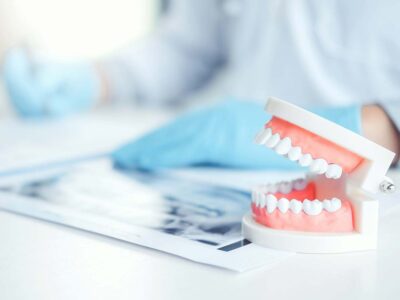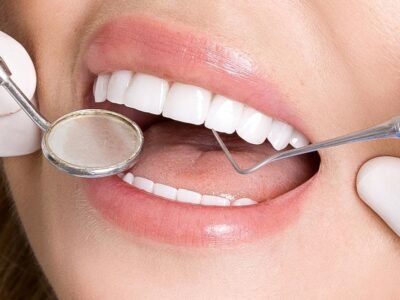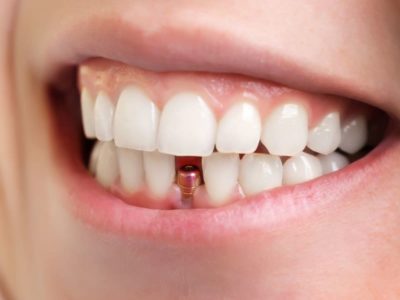How Nutrition Affects Dental Health in Children
Nutrients Support Enamel Strength and Gum Health
The strength of your child’s enamel—the outer protective layer of the teeth—depends on essential nutrients such as calcium, phosphorus, and vitamin D. These nutrients help reinforce enamel, making teeth more resistant to decay. Gum health is equally important, and vitamins like vitamin C and vitamin A support tissue integrity and healing.
Key Nutrients for Healthy Teeth and Gums:
- Calcium:Strengthens enamel and is found in dairy products, leafy greens, and almonds.
- Phosphorus:Works with calcium to fortify teeth and is found in eggs, fish, and nuts.
- Vitamin D:Aids in calcium absorption and is present in fortified milk, eggs, and sunlight exposure.
- Vitamin C:Promotes healthy gums and is abundant in citrus fruits, strawberries, and bell peppers.
- Vitamin A:Supports saliva production, which helps wash away food particles and bacteria, and is found in carrots, sweet potatoes, and spinach.
Cavity-Preventing Foods vs. Cavity-Causing Foods
The types of food your child eats can either protect their teeth or contribute to tooth decay. Sugary and starchy foods encourage bacterial growth, leading to plaque buildup and cavities, while fiber-rich foods and dairy products help neutralize acids in the mouth.
Best Foods for Dental Health:
- Dairy Products (Milk, Cheese, Yogurt):These are rich in calcium and help neutralize acids that erode enamel.
- Crunchy Fruits & Vegetables (Apples, Carrots, Celery):These foods help clean teeth and stimulate saliva production, which washes away bacteria.
- Leafy Greens (Spinach, Kale):High in calcium, folic acid, and vitamins that strengthen teeth and gums.
- Nuts & Seeds:Provide phosphorus, calcium, and healthy fats that protect enamel.
Worst Foods for Dental Health:
- Sugary Snacks & Drinks (Candy, Soda, Juice):Sugar fuels bacteria that produce acid, leading to cavities.
- Sticky & Starchy Foods (Bread, Chips, Dried Fruits):These foods cling to teeth, providing a breeding ground for bacteria.
- Acidic Foods & Drinks (Citrus, Sports Drinks, Soda):These can erode enamel over time if consumed in excess.
A Diet Rich in Vitamins and Minerals Promotes Healthy Teeth Development
From infancy through adolescence, children’s teeth undergo critical development phases. A nutrient-rich diet supports strong, properly formed teeth that are less prone to decay and structural issues. Ensuring that children get the right vitamins and minerals is essential for their dental growth and development.
Healthy Eating Tips for Strong Teeth:
- Encourage water over sugary drinks.Fluoridated water helps strengthen enamel and wash away food particles.
- Incorporate dairy and plant-based calcium sources.This ensures proper enamel formation and protection.
- Provide whole fruits instead of fruit juices.Whole fruits contain natural fibers that help clean teeth and limit sugar exposure.
- Limit processed and sugary foods.Choose whole, unprocessed foods that promote overall health.
Essential Nutrients for Strong Teeth
- Calcium and Phosphorus – Strengthening Tooth Enamel
Calcium and phosphorus are two of the most vital minerals for maintaining strong, healthy teeth in children. These nutrients work together to build and reinforce enamel, the outer protective layer of the teeth, making them more resistant to cavities and erosion.
Sources of Calcium and Phosphorus:
- Dairy Products:Milk, cheese, and yogurt are rich in calcium and help neutralize acids that weaken enamel.
- Leafy Greens:Vegetables like spinach and kale provide plant-based calcium to support dental health.
- Nuts and Seeds:Almonds, sesame seeds, and sunflower seeds offer phosphorus and calcium to strengthen teeth.
How They Protect Teeth:
- Remineralization:Calcium and phosphorus help repair and rebuild enamel that may have been weakened by acidic foods or bacteria.
- Prevention of Tooth Decay:These minerals create a protective barrier that makes teeth less vulnerable to decay and cavities.
- Vitamin D – Aiding Calcium Absorption
Vitamin D plays a crucial role in your child’s dental health by enhancing the body’s ability to absorb calcium and phosphorus. Without sufficient vitamin D, even a calcium-rich diet may not be fully effective in strengthening teeth and bones.
Sources of Vitamin D:
- Fatty Fish:Salmon, mackerel, and tuna are excellent natural sources of vitamin D.
- Eggs:The yolk contains a good amount of vitamin D, supporting overall bone and dental health.
- Fortified Dairy Products:Many milk, cheese, and yogurt brands are enriched with vitamin D to help promote better calcium absorption.
How Vitamin D Supports Dental Health:
- Aids in Proper Tooth Development:Helps ensure that children’s teeth grow strong and develop correctly.
- Reduces the Risk of Tooth Decay:Strengthens enamel by allowing calcium to bond effectively with teeth.
- Supports Bone Health:Essential for maintaining a healthy jawbone, which supports teeth and prevents early tooth loss.
A pediatric dentist can help assess your child’s nutritional intake and recommend dietary adjustments or supplements if necessary to ensure they get enough vitamin D for optimal oral health.
- Vitamin C – Supporting Gum Health
Vitamin C is essential for maintaining healthy gums, as it plays a vital role in collagen production, which supports gum tissue and strengthens blood vessels. A deficiency in vitamin C can lead to weakened gums, increased sensitivity, and even gum disease, making it a crucial nutrient in your child’s diet.
Sources of Vitamin C:
- Citrus Fruits:Oranges, lemons, and grapefruits provide a high dose of vitamin C.
- Berries:Strawberries, raspberries, and blueberries help maintain gum health.
- Vegetables:Bell peppers, tomatoes, and broccoli are excellent sources of vitamin C.
How Vitamin C Supports Oral Health:
- Prevents Gum Disease:Strengthens gum tissue, reducing the risk of gingivitis and bleeding gums.
- Promotes Healing:Helps repair minor gum injuries and reduces inflammation.
- Supports Strong Blood Vessels:Maintains healthy circulation in the gums, ensuring they receive essential nutrients.
- Water – The Best Beverage for Oral Health
Water is one of the most important components of a child’s diet when it comes to maintaining good oral health. Unlike sugary drinks, which contribute to cavities and tooth decay, water helps protect and strengthen teeth while keeping the mouth clean.
Benefits of Water for Oral Health:
- Prevents Cavities with Fluoride:Many communities, including , provide fluoridated water, which helps strengthen enamel and prevent tooth decay.
- Washes Away Food Particles and Bacteria:Drinking water after meals helps remove leftover food particles and reduce bacterial buildup, lowering the risk of cavities.
- Neutralizes Acids in the Mouth:Water dilutes acids produced by bacteria and sugary foods, reducing the chances of enamel erosion.
- Keeps the Mouth Hydrated:A hydrated mouth produces enough saliva, which plays a critical role in protecting teeth and gums.
- Fiber-Rich Foods – Natural Teeth Cleaners
Fiber-rich foods play a crucial role in maintaining good oral hygiene by acting as natural toothbrushes. These foods help clean the teeth while also stimulating saliva production, which is essential for neutralizing acids and washing away bacteria.
Sources of Fiber-Rich Foods:
- Crunchy Fruits:Apples and pears help scrub teeth and gums while being naturally sweet and nutritious.
- Raw Vegetables:Carrots, celery, and cucumbers are excellent for cleaning teeth and massaging gums.
- Whole Grains:Brown rice, oats, and whole wheat bread provide fiber and help promote overall oral health.
How Fiber-Rich Foods Support Dental Health:
- Stimulates Saliva Production:Saliva helps wash away food particles and bacteria, reducing the risk of cavities.
- Cleans the Surface of Teeth:The fibrous texture scrapes plaque and debris from teeth as children chew.
- Balances pH Levels in the Mouth:By neutralizing harmful acids, fiber-rich foods protect against enamel erosion.
Foods That Harm Children’s Teeth
While a nutritious diet strengthens and protects children’s teeth, certain foods can do the opposite—fueling cavity-causing bacteria, eroding enamel, and increasing the risk of tooth decay. Being mindful of these harmful foods and limiting their intake can help maintain your child’s oral health.
- Sugary Snacks and Candies – Fuel Cavity-Causing Bacteria
Sugar is one of the biggest culprits behind cavities. When children consume sugary foods, bacteria in the mouth break down the sugar and produce acids that erode enamel, leading to tooth decay.
Examples of Harmful Sugary Foods:
- Hard candies (lollipops, jawbreakers)
- Chocolate bars with caramel or nougat fillings
- Sugary cereals and granola bars
- Cookies, cakes, and pastries
How to Minimize the Damage:
- Encourage children to brush their teeth after consuming sugary snacks.
- Choose fresh fruits over processed sweets.
- Offer sugar-free gum to stimulate saliva production and neutralize acids.
- Sticky Foods – Get Stuck in Teeth and Cause Decay
Sticky foods are especially harmful because they cling to teeth, making it difficult for saliva to wash them away. This prolonged exposure allows bacteria to thrive and contribute to cavities.
Common Sticky Foods to Avoid:
- Gummies and fruit snacks
- Dried fruits (raisins, apricots, dates)
- Caramel and toffee
- Peanut butter with added sugar
Healthier Alternatives:
- Opt for fresh fruits instead of dried ones.
- Choose natural peanut butter without added sugar.
- Encourage kids to rinse with water after consuming sticky foods.
- Acidic Beverages – Erode Tooth Enamel
Acidic drinks weaken enamel, making teeth more vulnerable to decay and sensitivity. Many popular children’s beverages contain high levels of acid, which can contribute to enamel erosion over time.
Highly Acidic Drinks to Limit:
- Soda and soft drinks (even diet versions)
- Fruit juices (orange juice, lemonade)
- Energy drinks and sports drinks
How to Protect Teeth from Acidic Drinks:
- Encourage water as the primary beverage.
- Use a straw when drinking acidic beverages to minimize contact with teeth.
- Wait 30 minutes before brushing after consuming acidic drinks to avoid brushing softened enamel.
Creating a Tooth-Friendly Diet for Kids
A well-balanced diet is essential for maintaining strong teeth and gums. Encouraging healthy eating habits early can prevent cavities and promote lifelong oral health. By incorporating nutrient-rich foods and limiting sugary snacks, parents can help protect their child’s smile.
- Incorporate Dairy, Lean Proteins, and Fiber-Rich Foods into Meals
Foods rich in calcium, phosphorus, and protein help strengthen teeth and gums while promoting overall oral health.
✅ Tooth-Friendly Foods:
- Dairy:Milk, cheese, and yogurt support enamel health and remineralization.
- Lean Proteins:Eggs, poultry, fish, and tofu provide essential nutrients for gum health.
- Fiber-Rich Foods:Apples, carrots, and whole grains naturally clean teeth and stimulate saliva production.
- Limit Sugary Snacks and Drinks, Replacing Them with Healthy Alternatives
Frequent snacking on sugary treats increases the risk of cavities by feeding bacteria that produce harmful acids. Swap out processed sweets for healthier options that benefit teeth.
❌ Foods to Avoid: Candy, cookies, fruit snacks, and sugary cereals
✅ Healthier Alternatives: Fresh fruit, unsweetened applesauce, nuts, and cheese sticks
- Encourage Drinking Water Instead of Sugary Beverages
Water is the best beverage for oral health as it rinses away food particles, neutralizes acids, and keeps the mouth hydrated. Fluoridated water strengthens enamel and helps prevent cavities.
✅ Best Drinks for Kids:
- Plain water (preferably fluoridated)
- Milk (for calcium and vitamin D)
- Unsweetened herbal teas
❌ Beverages to Limit:
- Soda and soft drinks
- Juice (even 100% fruit juice contains high natural sugar)
- Sports and energy drinks
- Make Nutritious Snacks Fun and Appealing
Healthy eating can be enjoyable! Creating visually appealing, tasty snacks will make children more excited about nutritious choices.
✅ Fun, Healthy Snack Ideas:
- Fruit slices arranged in fun shapes
- Yogurt with granola and berries
- Cheese cubes with whole wheat crackers
- Peanut butter with apple slices
- Smoothies with spinach, bananas, and yogurt












Comments